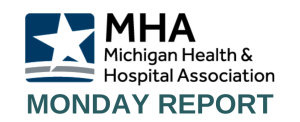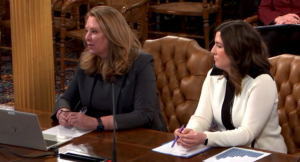The MHA drafted comments to the Centers for Medicare & Medicaid Services (CMS) regarding the proposed rule to update the Medicare fee-for-service hospital inpatient prospective payment system for fiscal year (FY) 2024.
The MHA expresses concern about the inadequate proposed increase for FY 2024, citing historical inflationary increases in labor, equipment, supplies and drug costs faced by hospitals. The proposed rule is estimated to provide a 1.7% increase for Michigan hospitals, significantly lower than the 4% increase in healthcare inflation for 2022. Other recommendations include:
- The CMS to evaluate the negative inflationary impacts on healthcare and provide appropriate support to hospitals.
- Improve payment updates, including eliminating the productivity adjustment cut, and recognizing increased inflation over the last several years.
- Request the CMS explain the factors driving the increase to the outlier threshold payment and consider changes to mitigate the impact on hospitals treating higher acuity patients.
- Object to the projected decrease in Medicare disproportionate share hospital and uncompensated care payments, emphasizing the importance of these payments for hospitals serving vulnerable, low-income patients.
- Support counting rural emergency hospital residents for GME and IME payment purposes and pay for their training at 101% of reasonable cost.
- Request the CMS reevaluate the proposed severe sepsis and septic shock management bundle due to variability in sepsis identification and administrative burden.
Overall, the MHA comments aim to address the financial challenges faced by hospitals, support vulnerable patient populations and advocate for fair reimbursement policies. Hospitals are encouraged to use the MHA comments as a template and submit comments to the CMS by June 9.
Members with questions may contact Renee Smiddy with the MHA.


 State Medicaid Office Addresses Legislative Policy Panel
State Medicaid Office Addresses Legislative Policy Panel MHA Provides Testimony Supporting State Psychiatric Care and Healthy Michigan Plan
MHA Provides Testimony Supporting State Psychiatric Care and Healthy Michigan Plan The Biden Budget: Key Signals to Voters and an Important Implications for the Health Industry
The Biden Budget: Key Signals to Voters and an Important Implications for the Health Industry MHA in the News
MHA in the News